The Only Solution is Love: The Eucharist and Catholic Social Teaching
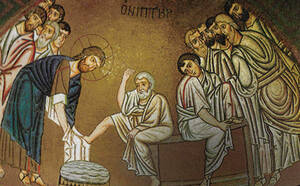
This six-part lecture series focuses on the link between the Eucharist and Catholic Social Teaching. In keeping with teaching that “the Eucharist commits us to the poor” (Catechism of the Catholic Church, # 1397), these lectures show that the pursuit of justice is the fruit of Eucharistic action in overcoming indifference to and alleviating the suffering of the poor and marginalized.
From various perspectives, these speakers explore the truth articulated by Dorothy Day at the end of The Long Loneliness, that in the face of injustice and violence, “the only solution is love.”
This lecture series is sponsored by the McGrath Institute for Church Life and co-sponsored by the Center for Social Concerns and the Department of Theology at the University of Notre Dame.
These sessions are free and open to the public. Unless otherwise noted, all lectures take place in the Oak Room, South Dining Hall, Upper Level.
Schedule of Events
"The Eucharist and Human Dignity" by Clemens Sedmak, Ph.D.
Wednesday, January 31
4:30 - 5:45 p.m.
Oak Room, South Dining Hall, Upper Level
This lecture reflects on the connection between human dignity and the Eucharist with special attention to the dignity of people at the margins. It reconstructs the relevance for the liturgy for a deep understanding of a preferential option for the poor and works with examples of how the Eucharist has lifted up the dignity of people under difficult circumstances.
"Eucharistic Abundance and Social Regeneration" by Margaret Pfeil, Ph.D.
Wednesday, February 14
4:30 - 5:45 p.m.
Oak Room, South Dining Hall, Upper Level
This talk will explore the relationship between Eucharistic liturgy and Catholic social thought in conversation with the insights of St. Basil of Caesarea, St. Irenaeus, Dorothy Day, Virgil Michel, and St. Oscar Romero. The beginning of Lent offers a fresh opportunity to enter into the essential relationship between liturgy and social regeneration as Eucharistic abundance nourishes the works of mercy.
*"The Eucharistic Sacrifice and the Mission to the Poor" by Bishop Daniel E. Flores
Wednesday, Feb. 28
4:30 - 5:45 p.m.
*Please note different location: Eck Visitors Center Auditorium
Bishop Flores describes the dynamism inherent within the Eucharistic celebration that both names Christ’s mission to the poor, and makes us capable of participating in it. The theme will include addressing “who are the poor?”
Response by: Anna Rowlands, Ph.D., Professor, Durham University, United Kingdom
"A Theology of Migration: The Bodies of Refugees and the Body Of Christ" by Daniel G. Groody, CSC
Wednesday, March 20
7 p.m.
Oak Room, South Dining Hall, Upper Level
This lecture reframes migration through a Eucharistic narrative, rather than the usual political, social, and cultural narratives, aligning the outer journey of migrants, the inner journey of faith, and the divine journey of Christ into our world and back to God. It explores the Body of Christ as encountered inside a Church building in the sacrament of the Eucharist, and also as encountered outside of it in the least and last among us (Mt 25:31-46). In the context of the global migration and refugees crisis, it shows the ways the divine and human intermingle on our earthly pilgrimage, transforming us into the image and likeness of God, so that we become bread for the world through the works of mercy.
"Fruit of the Earth and Work of Human Hands: Eucharist as (and) Integral Ecology" by Emmanuel Katongole, Ph.D.
Wednesday, April 3
4:30 - 5:45 p.m.
Oak Room, South Dining Hall, Upper Level
In this lecture, Dr. Katongole will highlight the connections between Eucharist and ecology with a view of making two interconnected claims, namely (1) that an adequate understanding of the Eucharist intensifies and shapes the Christian responsibility for the care of Our Common Home, and (2) that efforts for the care of our Common home are Eucharistic in more than a symbolic sense. They are truly a sacrament (sign and reality) of God’s love for the earth. Drawing from the work of Bethany Land Institute in Uganda, he will display the dynamic relationship between these two claims.
"God in Things and People: Commodity Fetishism and the Eucharist" by William T. Cavanaugh, Ph.D.
Wednesday, April 17
4:30 - 5:45 p.m.
Oak Room, South Dining Hall, Upper Level
One of the pathologies that produce poverty in the current economic system is the simultaneous deification of things and reification of people: we invest divinity in material things, while people are treated as instruments toward profit. In this lecture, Cavanaugh will explore the Eucharist as an antidote to this idolatry. The Eucharist provides a better, sacramental way of seeing God's presence in the material world, while simultaneously offering an identification of people, especially the poor, with God in Christ.
Response by: Jenny Newsome Martin, Ph.D., Department of Theology, University of Notre Dame
Speakers and Bios
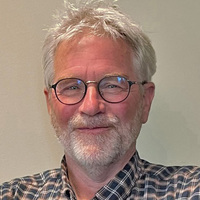
Michael J. Baxter, Ph.D. the coordinator of these lectures, is a Visiting Associate Professor at the McGrath Institute for Church Life. He earned his Master of Divinity degree from the University of Notre Dame and his Ph.D. in Theology and Ethics from Duke University. He has taught at Regis University in Denver, DePaul University, the University of Dayton, and the University of Notre Dame, and his articles have appeared in Modern Theology, Communio, Pro Ecclesia, and Nova et Vetera. He is completing a book of essays called “Blowing the Dynamite of the Church”: Radicalism Against Americanism in Catholic Social Ethics, to be published by Cascade Press.
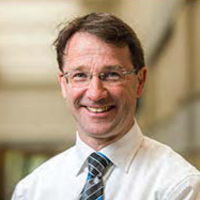
Clemens Sedmak, Ph.D. is professor of social ethics at the Keough School of Global Affairs and concurrent professor of theology. He is a theologian and philosopher and his area of expertise is Catholic Social Tradition. Recent books include Enacting Catholic Social Tradition (Orbis 2022), Enacting Integral Human Development (Orbis 2023).
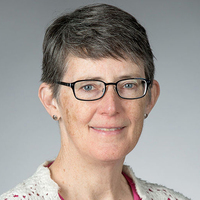
Margaret R. Pfeil, Ph.D. holds a joint appointment in the Theology Department and in the Center for Social Concerns at the University of Notre Dame. She is a Faculty Fellow of the Kroc Institute for International Peace Studies, the Klau Institute for Civil and Human Rights, and the Ansari Institute for Global Engagement with Religion. Her research interests include Catholic social thought, racial justice, ecological ethics, ecumenical dialogue, and peace studies. She has co-authored and co-edited several volumes. She is also a founder and resident of the St. Peter Claver Catholic Worker Community in South Bend, Indiana.
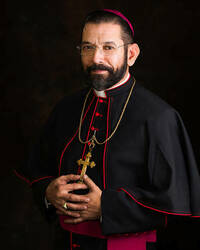
Most Rev. Daniel E. Flores, S.T.D. has served as the Bishop of the Diocese of Brownsville since 2009. He studied at the University of Dallas, and Holy Trinity Seminary, completing a BA in Philosophy and a Masters of Divinity. In 1988 he was ordained to the priesthood for the Diocese of Corpus Christi. He completed work on his doctoral dissertation in Sacred Theology at the Angelicum in 2000. In 2006, he was appointed and ordained as Auxiliary Bishop of the Archdiocese of Detroit. Presently, Bishop Flores serves as a committee member on several USCCB Committees as well as chair of the Doctrine Committee.
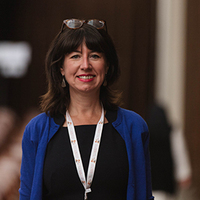
Anna Rowlands, Ph.D. is the holder of the St Hilda Chair in Catholic Social Thought and Practice. She is a political theologian who works at the interface of political and social theory and Christian theology. Her original training was in the social and political sciences, followed by postgraduate degrees in theology. She has worked for two decades on the political philosophy of Gillian Rose, with additional interests in Hannah Arendt and Simone Weil. These interests coincided with research over the last 15 years in two other areas: the study of forced migration and the ethics of migration in the tradition of Catholic Social Teaching.
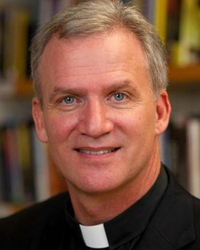
Daniel G. Groody, C.S.C. associate professor of theology and global affairs, is the Vice President and Associate Provost for Undergraduate Education at the University of Notre Dame. His major responsibilities include advancing undergraduate teaching, research, and outreach as well as overseeing Academic Services for Student-Athletes, the Center for University Advising, the Flatley Center for Undergraduate Scholarly Engagement, the Moreau First Year Experience course, and the work of the Core Curriculum Committee. In addition to his role in the provost’s office, Father Groody serves as a Fellow and Trustee of the University and is the adviser for discernment and discovery for Notre Dame’s Inspired Leadership Initiative.
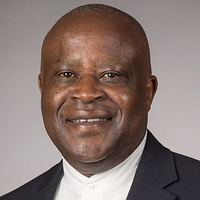
Emmanuel Katongole, Ph.D. is a Catholic priest, ordained (1987) for the Archdiocese of Kampala, Uganda. He serves as Professor of Theology and Peace Studies in the Keough School at the University of Notre Dame, and as Extraordinary Professor of Ecclesiology at the University of Stellenbosch, South Africa. Before joining the faculty at Notre Dame (Jan 2013), he was Associate Professor of Theology and World Christianity at Duke University, and founder and co-director of the Duke Center for Reconciliation. He is the author of several books, including Reconciling All Things (with Chris Rice, Intervarsity 2008); The Sacrifice of Africa: A Political Theology for Africa (Eerdmans, 2011), and more recently, Who Are My People? Love, Violence and Christianity in Sub-Saharan Africa (University of Notre Dame Press, 2022). He is co-founder, and President of Bethany Land Institute in Uganda.
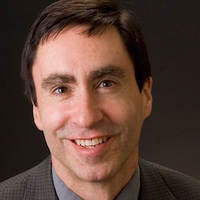
William T. Cavanaugh, Ph.D. is Professor of Catholic Studies and Director of the Center for World Catholicism and Intercultural Theology at DePaul University. His degrees are from the universities of Notre Dame, Cambridge, and Duke. He is editor of eight books and author of nine more, including, most recently, The Uses of Idolatry (Oxford University Press, 2024). He has given invited lectures on six continents, and his work has been published in seventeen languages.
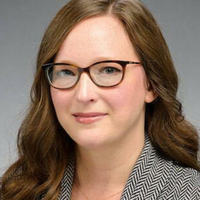
Jennifer Newsome Martin, Ph.D. is a Catholic systematic theologian with expertise in the thought of Hans Urs von Balthasar. Her first book, Hans Urs von Balthasar and the Critical Appropriation of Russian Religious Thought, was one of ten winners internationally of the 2017 Manfred Lautenschlaeger Award for Theological Promise. She serves on the editorial boards of Religion & Literature, Theological Studies, Communio: International Theological Review, and the University of Notre Dame Press and has been a leader of the Hans Urs von Balthasar Consultation of the Catholic Theological Society of America. Holding a joint appointment in the Program of Liberal Studies and the Department of Theology at the University of Notre Dame, she will begin in July 2024 as the Director of the de Nicola Center for Ethics and Culture.